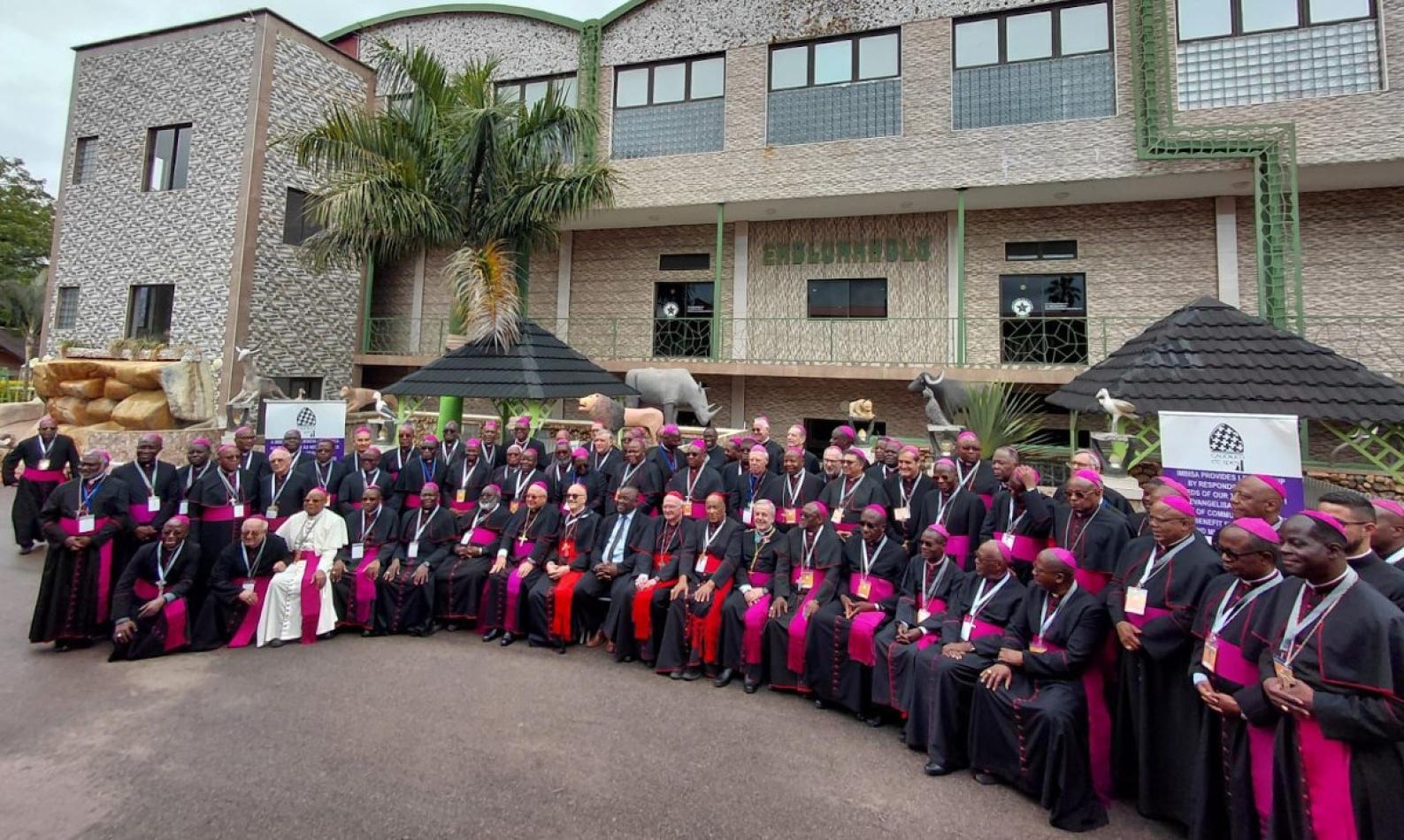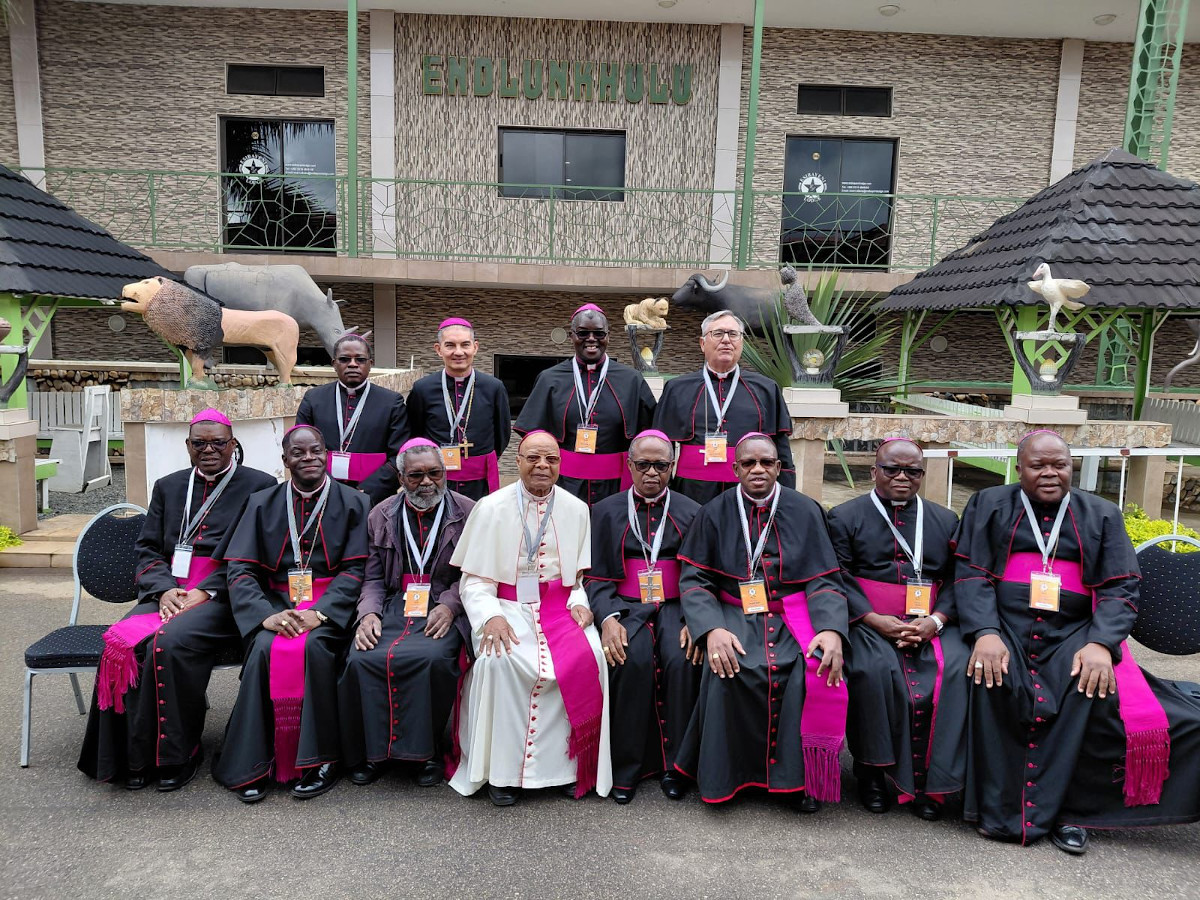Daniel Comboni
Missionários Combonianos
Área institucional
Outros links
Newsletter
Tuesday, September 30, 2025
Delegates to the 14th Plenary Assembly and Golden Jubilee celebrations of the Inter-Regional Meeting of the Bishops of Southern Africa (IMBISA) have been urged to demand government accountability to the plight of the poor in their respective countries. [ACI Africa]
In his homily during the Sunday, September 28 closing Mass of the six-day activities that started on September 24, Bishop Raymond Tapiwa Mupandasekwa used Jesus' story of the unnamed rich man and Lazarus in the Gospel Reading of the day to urge IMBISA members to commit themselves to building a society where no one lives as a “Lazarus.”
“We have to accept the challenge of making our governments more accountable,” Bishop Tapiwa said, referring to Catholic Bishops in the IMBISA member countries – Angola, Botswana, Eswatini, Lesotho, Mozambique, Namibia, São Tomé and Príncipe, South Africa, and Zimbabwe. The Local Ordinary of Masvingo Catholic Diocese in Zimbabwe added, “Some of our leaders are blind to the destitution of our people, and to the plight of Lazaruses who lie skin and bones on the streets, unable to access what is even reserved for their households.”
What made the rich man blind to the suffering of Lazarus in Jesus’ story in the Gospel according to Luke was his busyness with fashion, dressing well, and his love for good food and feasting magnificently daily while demonstrating indifference to the situation of Lazarus, he said during the closing Mass of the six-day event held at Mavuso Trade Centre in Eswatini’s only Catholic Diocese of Manzini.
As the people of God, Bishop Tapiwa said, “We are either with the victims or we are with the aggressors; and there is no neutrality.” He went on to pose, “To which camp do we belong?”
“Does Lazarus have brothers? And does the rich man have accomplices? The problem highlighted in today's Gospel does not just lie with this particular rich man,” he said, and added, “More worrisome is the society that gives birth to such people who are unconcerned and unmoved by the suffering of others.”
Bishop Tapiwa said he finds it unfortunate that Lazarus' story does not have a happy ending, as he starves to death without getting justice on this earth. “Our work in IMBISA is the work to build a society where there are no Lazaruses, where people do not have to starve to death. Our work is to form men and women who are not blind to the needs of others,” he said in his September 28 homily.
To minimize cases of poverty-related suffering in the IMBISA region, the Zimbabwean Catholic Church leader called for a spirit of compassion, in line with the ongoing Catholic Church’s 2025 Jubilee Year.
“In our Jubilee prayer, we pray for compassion,” he said, and added, “In the face of a heartless world, we are called to be prophetically compassionate.”
As IMBISA members, Bishop Tapiwa said, “we should be witnesses to the Gospel of Christ by lives that are mercy-driven, lives that are directed by compassion. Today, we pray that we may be faithful to that mandate, that charge that the Bishops have given us — to be compassionate.”
The Zimbabwean member of the Congregation of The Most Holy Redeemer (Redemptorists, CSsR) also challenged the delegates at the event that started on September 24 “to add weight to the cries against corruption, the scourge that has destroyed our economies, giving the wealth of our countries to many foreign agents.”
Eswatini hosted the September 24-29 double celebration of the 14th Plenary Assembly and the Golden Jubilee of IMBISA, the latter realized under the theme, “IMBISA Golden Jubilee: A Synodal journey, nourished by compassion and blossoming in faith as pilgrims of hope.”
Ahead of the six-day double celebration, in a press briefing on August 27, Bishop José Luís Gerardo Ponce de León of Manzini Diocese had disclosed that 120 delegates drawn from the nine countries of IMBISA, including Cardinals, Archbishops, Bishops, Clergy, women, and men Religious, and Laity, would grace the Jubilee celebration.
In his September 28 homily, Bishop Tapiwa said that the golden Jubilee was not just “a celebration of the passage of fifty years, but the joy of believing in a God who lives and has led our founding fathers through trials and tribulations to this jubilee moment, to make a deeper commitment to serving Him by this day.”
The Jubilee, he said, “is a moment of rededication to live in our faith now and into the future. As we rededicate ourselves to live in our faith with greater vigour, we recognize that the gaining of political freedom that was supported by the founding of IMBISA has not brought with it the anticipated outcomes.”
“It is our silence in trying moments of member States and member Conferences, which may be a sign that the inter-regional meeting (IMBISA) must evolve into a Conference that takes up greater responsibility for what is happening in the region and its members,” he said. In line with the Golden Jubilee’s theme, Bishop Tapiwa explained that “the synodal path that we have been invited to demands that we discern how best we can be more effective.”
“There is no time for apathy or complacency. This is a time for vigorous and positive action. How can IMBISA become more vigorous and more positive in its action in the service of reconciliation, of peace, and of justice?” he posed in his September 28 homily, and added, “We approach the altar of life not just as citizens, but as men and women of faith.”
Silas Isenjia – ACI Africa





